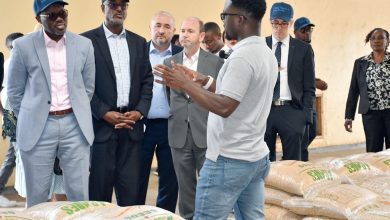Neno’s healthcare Partners march on
Partners in Health (PIH) has jumped front and centre in closing Neno District’s healthcare gaps.
The nongovernmental organisation, locally known as Abwezi Pa Za Umoyo, arrived in Neno in 2007.
Since then, it has been supporting the Malawi government to promote mental health, maternal health, non-communicable diseases (NCD) in a national push to ensure everyone gets quality healthcare without enduring financial hardship.
Its mental health initiative supports 1 532 clients in Neno. These include 862 persons with epilepsy.
PIH mental health clinical officer Boniface Nampota says the cases are mostly associated with epilepsy and substance abuse.
“We have increased numbers of patients that are coming into our care due to campaigns we are doing,” he says.
Azera Sinto, 82, from Chidakwani Village in Traditional Authority (TA) Chekucheku, says her epileptic daughter, Martha Frank, 55, has been getting medication for years.
“At first, she could faint twice or once a day. However, after medication, the situation has improved to twice a month,” says the mother.
There are similar inroads on the maternal health front.
Maternal and child health programme manager Sitalire Kapira says the road to safe motherhood begins way before a woman gets pregnant.
She states: “We’ve to see if she is on modern family planning methods and support her when she gets pregnant.
“Our focus is to ensure the mother attends antenatal care in the first three months of her pregnancy and look after her during delivery. We also screen her for other complications like cancer. The final stage is taking care of the baby.”
Juliet Tausi, 26, from Galeta Village in TA Chekucheku, delivered triplets when she was just seven months pregnant.
“I feared that my babies wouldn’t survive, but it was the same time when PIH came through and took charge of the situation,” she narrates.
Her husband, Patrick Nyerere, 39, who makes reed mats for a living, says it was not easy to support the family.
“When the triplets were born on December 18 2024, PIH officials phoned me, saying that we are together on this journey. They started helping from day one. They provided milk for babies throughout the month my children were in the hospital. They also gave us nutritious porridge and monetary support,” he said.
PIH provides diagnostic and social support to people with chronic diseases. The package includes food and school fees.
Dr Dimitri Suffrin, HIV and TB Programme manager, says community inroads ensure non-communicable diseases are detected early and treatment starts on time.
Last year, healthcare workers diagnosed 242 clients with different NCDs.
“When we find cases, we take them to our lab where we have proper diagnostic machines. Our clients receive messages on how to take care of themselves. We also educate those living with patients about the disease,” he said.

Mertine Sawamba, 82, from T/A Saimoni, has no one to take care of her since she stays alone.
She did not know what she was suffering from until 2024 when a PIH team visited her and took her to Neno District Hospital.
After checkups, the healthcare workers discovered that she was suffering from tuberculosis.
“During my hospital stay, I started receiving medication. Now, I am getting better,” she says.
Victor Kanyema leads the programme on social and economic rights which provides care and support to vulnerable clients.
PIH has put social support at the heart of its clinical services.
“We consider the social aspects and livelihood because it also affects the patient,” says Kanyema.
The initiative includes the provision of agricultural inputs, goat pass-on programmes and bursaries for secondary and university students.
PIH has built 181 houses for vulnerable patients on treatment.
“We only support the most vulnerable,” says Kanyema. “Each patient received five goats.”
Ester Kafuleza, 52, from Ngwenyama Village in T/A Saimoni lost her husband in 2001.
She stays with her 10-year-old grandson, who was diagnosed with a non-communicable disease.
PIH gave Kafuleza five goats and constructed a house for the two. They also receive maize, soya pieces and salt monthly.
“Since the day I lost my husband, life has been difficult. My house was damaged by heavy rains and the future looked bleak until PIH came to my rescue,” says the widow, who has lost seven of her nine children.
PIH supports 174 learners in secondary schools and university levels.
Every year, it also helps 10 primary school pupils.





